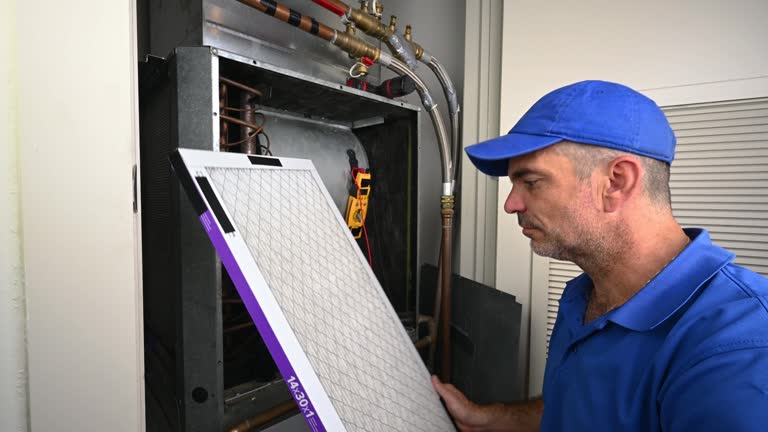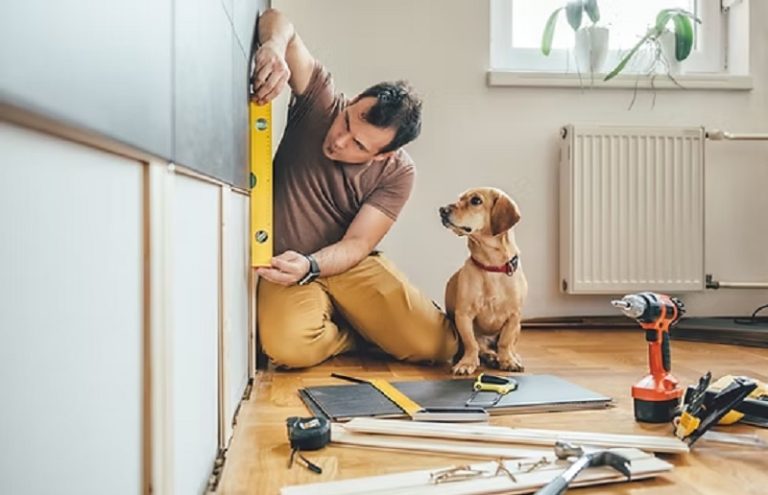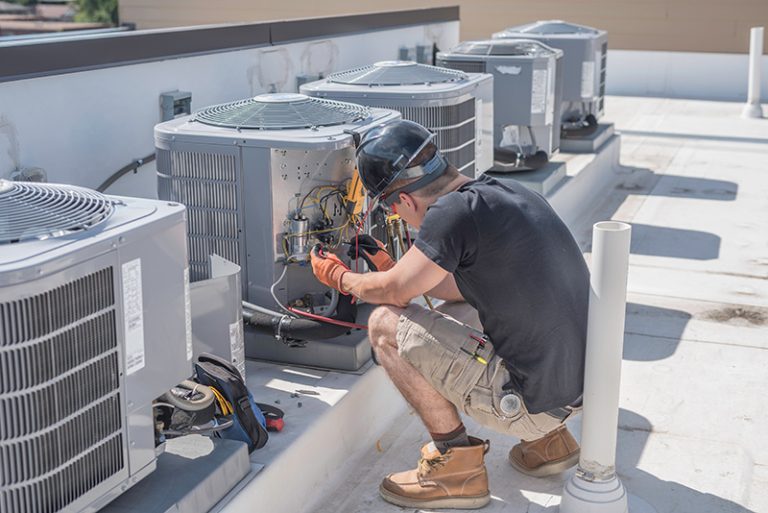
An HVAC (Heating, Ventilation, and Air Conditioning) system is essential for maintaining a comfortable indoor environment, ensuring both temperature regulation and air quality. However, even the most advanced HVAC system can’t operate effectively without a critical component: the air filter. The filter is responsible for trapping dust, dirt, allergens, and other pollutants, ensuring that clean, healthy air circulates throughout your home or building. Whether you’re a homeowner or a facility manager, understanding the role of HVAC filters, how to choose the right one, and when to replace them is crucial for keeping your system running smoothly and your air clean.
In this comprehensive guide, we’ll delve into everything you need to know about filters for HVAC systems, including types, maintenance, and the impact they have on air quality and energy efficiency.
Why Are Filters Important for HVAC Systems?
The primary purpose of an HVAC filter is to remove airborne particles and contaminants from the air before they enter the system’s ducts. This serves multiple important functions:
-
Improved Air Quality: Filters trap harmful particles like dust, pet dander, pollen, mold spores, and bacteria. This leads to cleaner, healthier air, especially important for those with respiratory issues such as asthma or allergies.
-
System Efficiency: A clean filter allows air to flow freely through the system, enabling the HVAC unit to operate at peak efficiency. A clogged or dirty filter can obstruct airflow, making the system work harder and consume more energy.
-
Preventing Damage: Filters protect the HVAC system from dirt and debris, preventing them from entering sensitive components such as the evaporator coil and blower. This helps avoid costly repairs and extends the lifespan of the system.
-
Energy Savings: A clean filter reduces the strain on your HVAC system, allowing it to function efficiently. When the system doesn’t have to work as hard, it consumes less energy, ultimately lowering your utility bills.
Types of HVAC Filters
There is a wide range of filters available for HVAC systems, each designed to meet different needs based on factors such as air quality, efficiency, and cost. Below are the most common types of HVAC filters:
1. Fiberglass Filters
Fiberglass filters are the most basic and affordable type of HVAC filter. They consist of a mesh of fiberglass fibers that capture larger particles, such as dust and debris, while allowing air to flow through relatively easily. While they are cost-effective and efficient for trapping large particles, they are less effective at capturing smaller pollutants like pet dander and pollen. These filters typically have a low MERV (Minimum Efficiency Reporting Value) rating, meaning they are best for general air filtration but not ideal for those with allergies or respiratory issues.
-
Pros: Affordable, readily available, and easy to replace.
-
Cons: Limited filtration capabilities, lower MERV rating.
2. Pleated Filters
Pleated filters are made from polyester or cotton and have a series of pleats that increase the surface area, allowing them to capture more particles. These filters provide better filtration than fiberglass filters and can trap smaller particles like dust, pollen, and mold spores. Pleated filters are available in a variety of MERV ratings, making them suitable for homes or businesses with specific air quality needs. Higher MERV-rated pleated filters are especially beneficial for those with allergies or asthma.
-
Pros: Higher filtration capabilities, longer lifespan than fiberglass filters, available in various MERV ratings.
-
Cons: More expensive than fiberglass filters.
3. HEPA Filters
HEPA (High-Efficiency Particulate Air) filters are among the most advanced filters available, capable of trapping 99.97% of airborne particles as small as 0.3 microns. These filters are ideal for environments where air quality is a top priority, such as hospitals, laboratories, or homes with individuals who suffer from severe allergies or respiratory conditions. HEPA filters are often used in conjunction with other filtration methods and are typically found in portable air purifiers rather than central HVAC systems due to their dense structure, which can restrict airflow in some systems.
-
Pros: Excellent air filtration, ideal for those with respiratory issues, removes even the smallest particles.
-
Cons: Expensive, can reduce airflow in some HVAC systems.
4. Activated Carbon Filters
Activated carbon filters are designed to remove odors, gases, and chemicals from the air, making them an excellent choice for environments where air quality is compromised by pollutants such as smoke, cooking smells, or VOCs (volatile organic compounds). These filters are often used in combination with other filters to provide comprehensive filtration. Activated carbon filters don’t typically trap dust or particles but excel at removing smells and harmful chemicals from the air.
-
Pros: Great for eliminating odors and chemicals, provides specialized filtration.
-
Cons: Doesn’t filter dust or particles effectively, often used as an additional layer in filtration systems.
5. Electrostatic Filters
Electrostatic filters use an electrostatic charge to attract and trap airborne particles. These filters can be either washable or disposable, and their filtration capabilities range from basic to highly efficient, depending on the MERV rating. Electrostatic filters are particularly effective at capturing dust, pollen, and pet dander. They are often used in homes with pets or high levels of dust.
-
Pros: Effective for capturing dust, pollen, and pet dander, washable options available, reusable.
-
Cons: Some models may have a lower MERV rating, requiring more frequent cleaning or replacement.
How to Choose the Right HVAC Filter
Choosing the right filter for your HVAC system depends on several factors, including your air quality needs, the type of HVAC system you have, and your budget. Here are some key considerations:
-
MERV Rating: The MERV rating measures the filter’s ability to capture airborne particles. The higher the MERV rating, the more efficient the filter. For most residential settings, a filter with a MERV rating of 6 to 12 is sufficient. If someone in the household has allergies or respiratory issues, a higher MERV rating (14 or above) may be appropriate.
-
Filter Size: Ensure that the filter you select fits your HVAC system. Filters come in a variety of sizes, and using the wrong size filter can reduce its effectiveness and cause it to slip out of place. Always check the manufacturer’s specifications for the correct filter dimensions.
-
Air Quality Needs: If you live in an area with high pollution or allergens, opt for a filter with a higher MERV rating or consider adding an activated carbon filter for odors and chemicals. Homes with pets or smokers may benefit from higher-efficiency filters to capture hair and dander.
-
System Compatibility: Some HVAC systems are not designed to handle high-efficiency filters, especially those with dense materials like HEPA filters. Make sure to consult your HVAC manufacturer or a professional technician to ensure that the filter you select won’t strain the system.
Maintaining HVAC Filters
Regular filter maintenance is essential to keeping your HVAC system running efficiently. Filters should be replaced or cleaned (depending on the type) every 30 to 90 days, or more frequently if you have pets or live in an area with high dust levels. Clogged or dirty filters can restrict airflow, causing the HVAC system to overheat and reducing its efficiency.
-
Check Filters Regularly: Look at your filters every month to see if they are clogged or dirty. If the filter appears gray or discolored, it’s time to replace it.
-
Change Filters Seasonally: In many cases, it’s advisable to change filters every season. This ensures that the system runs efficiently during the months of high use, such as winter or summer.
-
Hire a Professional: If you’re unsure which filter to choose or if your system requires more complex maintenance, consider hiring an HVAC professional to ensure optimal performance.
Conclusion
Filters play a vital role in the efficiency and performance of your HVAC system. By choosing the right filter for your needs, maintaining it regularly, and understanding its impact on air quality, you can enjoy a cleaner, more efficient, and healthier indoor environment. Whether you need basic filtration or more advanced protection, understanding the types of HVAC filters available and their functions will help you make informed decisions and keep your system running at its best for years to come. Proper care of your HVAC filters is a small but significant step towards improving indoor air quality, energy efficiency, and overall comfort.





